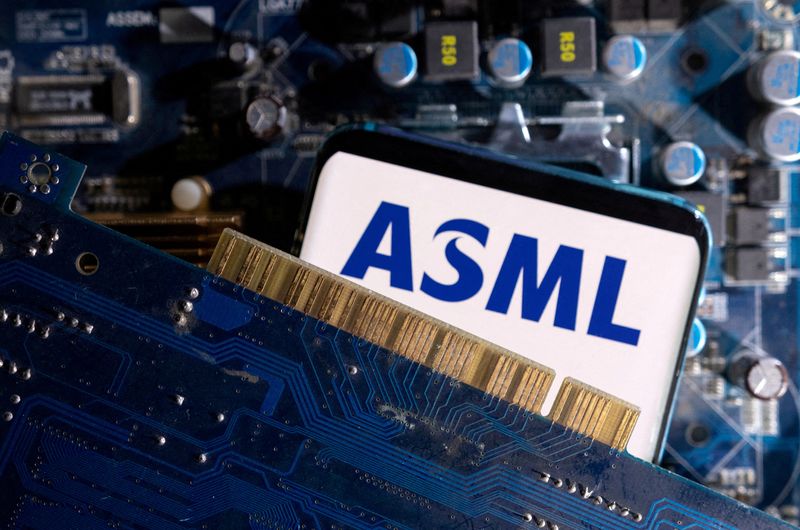By Toby Sterling
AMSTERDAM (Reuters) -Shares in ASML (AS:ASML), the largest maker of equipment used to manufacture computer chips, jumped on Wednesday following a Reuters report that signalled it may be spared many of the new U.S. restrictions being considered on exports to China.
The report said the U.S. would exclude allies including the Netherlands, where ASML is based, from new restrictions on equipment sales to half a dozen Chinese chipmaking plants.
ASML shares were up 5.6% at 855.20 at 0955 GMT.
"Today's news ... definitely alleviates the market's concerns as ASML had nearly half of sales from China in the first half of 2024," said Mizuho Securities analyst Kevin Wang.
The share price surge in Europe's biggest tech firm, with a market capitalisation of more than 300 billion euros ($325 billion), is the latest example of trade policy and political moves affecting stocks, rather than earnings or business plans.
Wednesday's rise reverses part of a large drop on July 17 following a Bloomberg report that the U.S. was considering unilateral action to restrict equipment exports by allies - including the Netherlands.
That obscured largely positive second quarter earnings from ASML that featured growing orders for its most advanced equipment from key customer TSMC amid the AI boom.
"We believe strong demand and tight capacity for advanced nodes in logic (computer chips) will drive more orders for ASML in the coming quarters," Wang said.
ASML and the Dutch government declined to comment.
ASML has a dominant position in lithography, the step of the chipmaking process in which the tiny circuitry of chips is created. U.S.-led restrictions on exports to China imposed since 2020 now cover much of the company's product range, but more limitations remain possible.
The company says that while its technology leadership remains intact, its sales will grow along with the semiconductor industry, regardless of where chips are made.
But around 20% of ASML's current order backlog is for sales of its older product lines to China and theoretically vulnerable to changes to policy in the short run.
Sales to China were a key support to ASML over the past 18 months, when Chinese firms snapped up equipment and few new plants in other regions began producing chips.

That should reverse 2025-2026 as new plants come on line in Taiwan, South Korea, the United States and in Europe, many with support from the U.S. "Chips Act" and similar programmes in other countries.
($1 = 0.9238 euros)